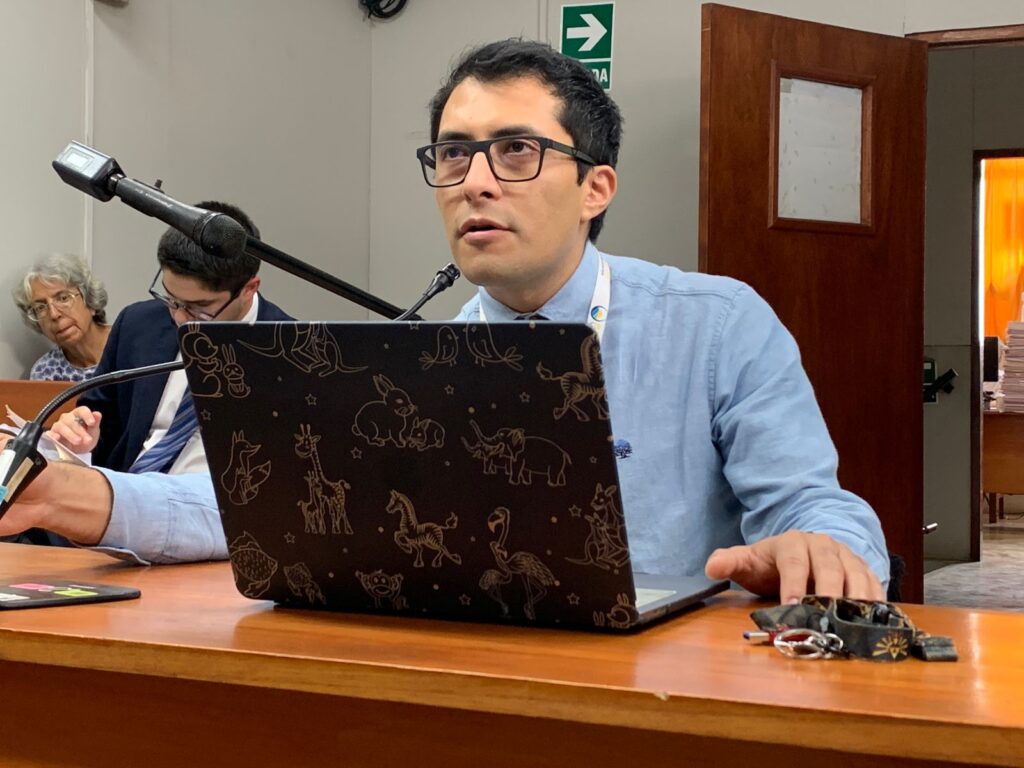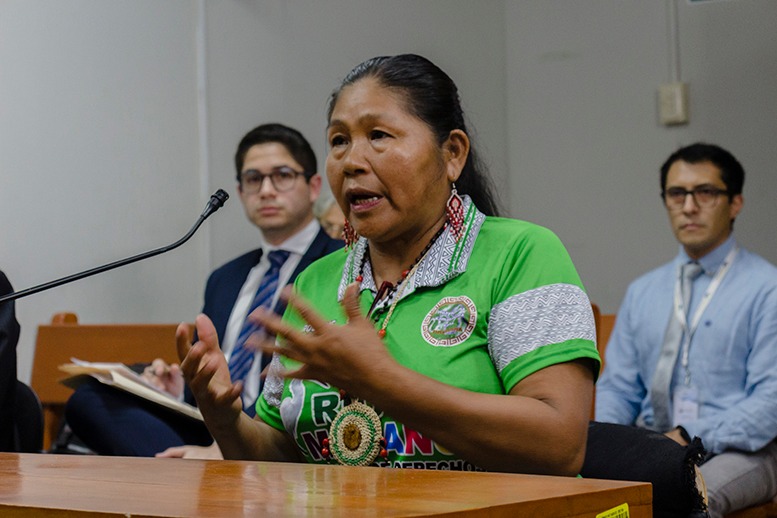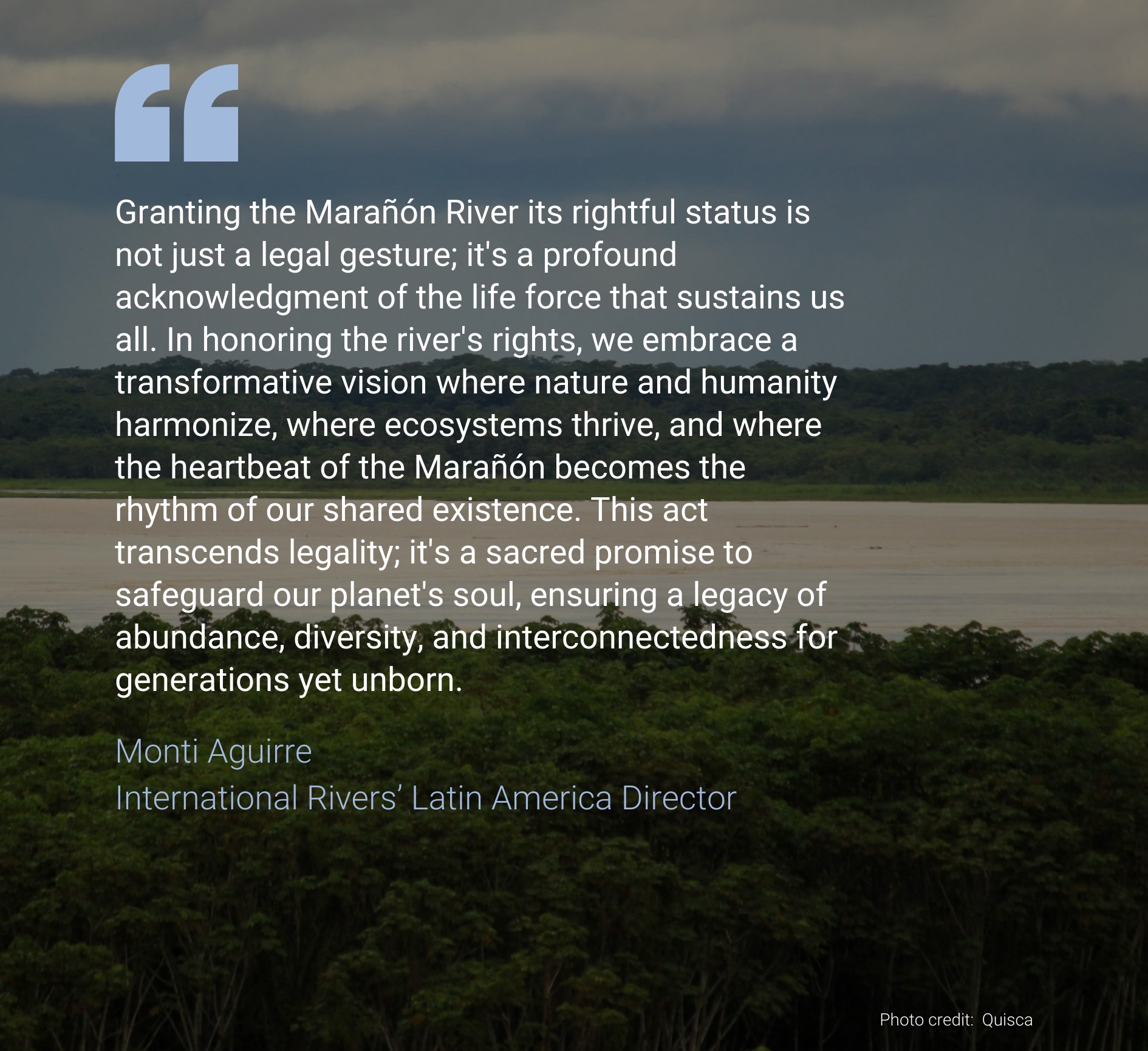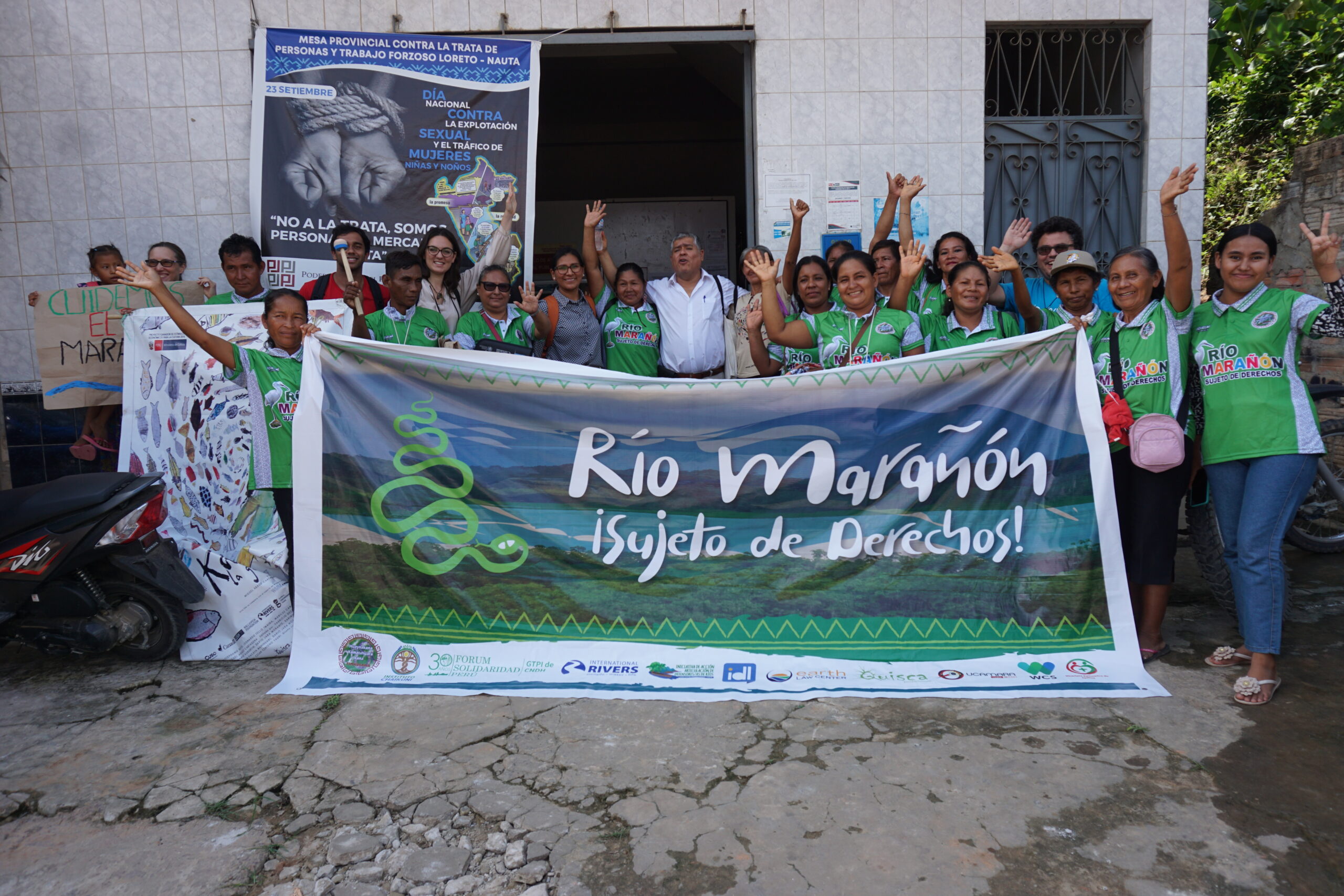By Monti Aguirre of International Rivers and Javier Ruiz of Earth Law Center
In a historic milestone for the protection of the Amazon rivers, the Marañón River in Peru has become the protagonist of an unprecedented case to elevate its status as a rights holder. This constitutional protection process, number 00010-2022-1901-JM-01, was filed by the Huaynakana Kamatahuara Kana Federation, an Indigenous Kukama women’s group rooted in the Parinari district, province, and region of Loreto. The communities that make up this federation were affected by the Saramuro oil spill in 2010.
This lawsuit not only seeks the repair of environmental damages but also the fundamental recognition that the Marañón River and its tributaries be considered rights holders. Among the claimed rights are the right to exist, flow, native biodiversity, and be free from pollution, among others.

On November 9th, the first public hearing was held at the Mixed Court of Nauta of the Superior Court of Justice of Loreto, presided over by Judge Corely Armas. “Judge Corely Armas and the Nauta court are aware that the decision they are about to make will resonate not only in Peru but internationally, marking a crucial precedent in the global struggle for environmental rights protection,” said Javier Ruiz, legal representative of the Earth Law Center. Ruiz presented arguments as an Amicus Curiae to defend the Marañón as a rights holder in the hearing.
The Marañón River is one of the most important rivers and water sources in Peru. Its headwaters are high in the Andes Mountains before the river flows through the Andean valley to become one of the mainstem sources of the Amazon River. Mariluz Canaquiri Murayari, president of the Huaynakana Federation, stated that they made this decision to file this case in 2021 in order to defend the river that provides them with water and food, and to ensure that these resources remain protected for future generations. “For the Kukama people, the Marañón River is very sacred because it is our life, the heart of our Amazon. There we have fishing, we obtain water, and without water, we cannot live. There we have our territory, our living beings, and our spirits. The river is a living being, like a person, it is people, and it deserves to be respected,” said Canaquiri.

Now, led by president Mariluz Canaquiri Murayari, the indigenous Kukama people raise their voices demanding environmental justice. Alongside her, Emilsen Flores Simon, Gilda Fasabi Saavedra, Celia Fasabi Pizango, and Rosa Isabel Tamani Tapayuri, all active members of Huaynakana, have signed this historic lawsuit.
Previously in 2021, the International Union for Conservation of Nature (IUCN) approved Resolution 013 – Protection of the Andean-Amazonian rivers of Peru: Marañón, Ucayali, Huallaga, and Amazonas, against large infrastructure projects. This resolution urges the Republic of Peru to establish a framework to protect Peru’s free-flowing rivers with specific measures to ensure that the aquatic and riparian ecosystems, as well as the territories of the local populations of the Amazon rivers, are not significantly affected by the development of infrastructure projects in the region, including the Amazon Waterway Project and planned hydroelectric plants on the Marañón.
By declaring the Marañón River a rights holder, this case would join more than a dozen cases worldwide seeking the protection and recovery of rivers in response to pollution, obstruction of their flow by dams, loss of biodiversity, changes in water quality, increased water levels, and altered flows, among other issues. River health is also extremely important in tackling climate change. Rivers act as major carbon sinks by transporting carbon from the land to the ocean and reducing the amount that returns to the atmosphere as heat-trapping carbon dioxide.
The lawsuit is directed at key actors, including the petroleum company, Petroperú; the Ministry of the Environment, the Institute of Research of the Peruvian Amazon (IIAP), the National Water Authority (ANA), and the Ministry of Energy and Mines. Also included are representatives of regional entities, such as the Executive Directorate of Environmental Management and the General Management of Indigenous Affairs of the Regional Government of Loreto.
Additionally, it requests the formation of the Interregional Basin Council of the Marañón River and the creation of sub-basin committees, ensuring the active participation of Indigenous communities in the management and conservation of natural resources. One of the most significant demands is the designation of the State and Indigenous organizations as guardians of the Marañón River, proposing the formation of a collegiate body, representative of Indigenous organizations in Loreto, called the “Guardians of the Marañón River,” to act on behalf of the river’s interests.

Recently, the Congress of the Republic rejected Bill 6957/2020-CR, an initiative supported by the Inter-American Commission on Human Rights (IACHR), which proposed recognition of the rights of Mother Nature, ecosystems, and species. However, “efforts to recognize the Rights of Nature, and in this case, rivers, continue due to the great concern about the high devastation, contamination, and commodification of that of which we are a part and that gives us life,” said Monti Aguirre of International Rivers. The international significance of this case is undeniable, evidenced by the attention it has garnered beyond Peruvian borders. “Judge Corely has the opportunity to set a milestone in the fight for ecological justice in the region,” concluded Aguirre.
Huaynakana Kamatahuara Kana Federation and Marañón River guardians outside the courthouse. Feature photo by Stephanie Boyd of Quisca

